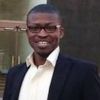
Emeka Chukwumah
- Course: MSc (Eng) Transport Planning and Engineering
- Year of graduation: 2013
- Nationality: Nigerian
- Job title: Transportation Engineer/Planner
- Company: FAO Consulting International (Nigeria) Ltd
I just recently accepted an offer to join a transport consultancy firm here in Nigeria. We are currently on the paperwork stage and, as such, I can’t brag of any responsibilities or accomplishments on the job yet. But when I asked during the interviews what projects I would be joining, I was overwhelmed by their response. They have more than a handful of transport accessibility studies around the country some of which include; The Kano State Airport Accessibility Study and a number of four and five-star hotel accessibility studies (I am delighted I didn’t stick solely to the engineering modules but diversified and took Analysing Transport & Society). They also have an ongoing public transport management and improvement study project for Lagos state; an area similar to my dissertation at ITS, which I obtained a distinction in. Their project on Value of Time for Lagos state has just kicked off and I would be privileged to be working with a top UK firm. I would be rendering my acquired knowledge and skills to these projects and other transport modelling projects.
My experience/affiliation with ITS is majorly responsible for my success in securing this job. A director in the company viewed my profile on LinkedIn and I was immediately invited for an interview two days after where they only wanted to hear me talk. Oh boy! During the interview they were particularly interested in the modules I took at ITS, my grades and how well I would rate myself in each; maybe because some of them are affiliated to ITS and others that weren’t held high esteem for the institute as they are alumni of UCL a ‘neighbouring’ school. Modules such as Analysing Transport and Society, Transport Network Modelling, Road Geometry and Infrastructure (basically modules that exposed me to the use transport related software programmes such as LinSig, SATURN etc.) were a big plus for me; then my knowledge in the module Stated Preference Methods was just the ‘icing on my cake’.
Whilst working as a Structural Engineer responsible for rigid pavement construction along the first BRT corridor in Lagos, Nigeria, I was exposed to the significance of public transport and the impact a small disruption to service has on the public and operators, as well as the inefficiencies of the system. I watched and observed how traffic built up and eased out every day, how most of the vehicles had just one occupant, as well as how the bus terminals and bus stops were chaotic and facilities stretched beyond its limits, amongst others. Everything in me just wanted to contribute a change to these situations. I went online and started researching transport in Africa, more specifically, scholarships available for such. From my research, I discovered that we lacked basic transport planning etiquette and the Commonwealth Shared Scholarship Scheme provided funding for this study ONLY at ITS. So I stopped researching and applied for a master’s degree in Transport Planning & Engineering at ITS (I had to go for the engineering option so I could still ‘feel at home’). I then applied for funding. Unfortunately, I was unsuccessful in the Commonwealth Shared scholarship but God being so kind, I was able to pull resources from left and right and proceeded to ITS. Not dissuaded or deterred, I still had an interest in public transport planning & management. Thus, my thesis was to seek ways of improving the bus transit system by obtaining the perceptions and expectations of middle-class citizens (potential car owners) in Lagos, Nigeria. Obtaining the views of users and expected users that a service is meant for and analysing these under the most ethical conditions was one of the honorary novelties of this research – a distinction one indeed. I felt accomplished!
I would advise anyone coming to ITS, Leeds, The Queen’s Anniversary Prize Winners - 'sustained transport excellence', to see it as a roller coaster ride where you have to ‘play solely by the rules or you get hurt’. You have to wear an appropriate clothing and mustn’t have eaten too much i.e. bring along your thinking cap and be prepared with your analytical mind. You also have to put on your safety gear i.e. write assignments on your own and submit as and when due. You may scream during the ride i.e. cry or feel over-stretched, do not be too bothered, it’s part of the fun. You are going to be turned, twisted, dropped, raised etc.; it’s still part of the fun; the moulding stage! Like every other roller coaster ride, the end is where the laughter and joy comes, you look back and relish the moments. Thank You!

